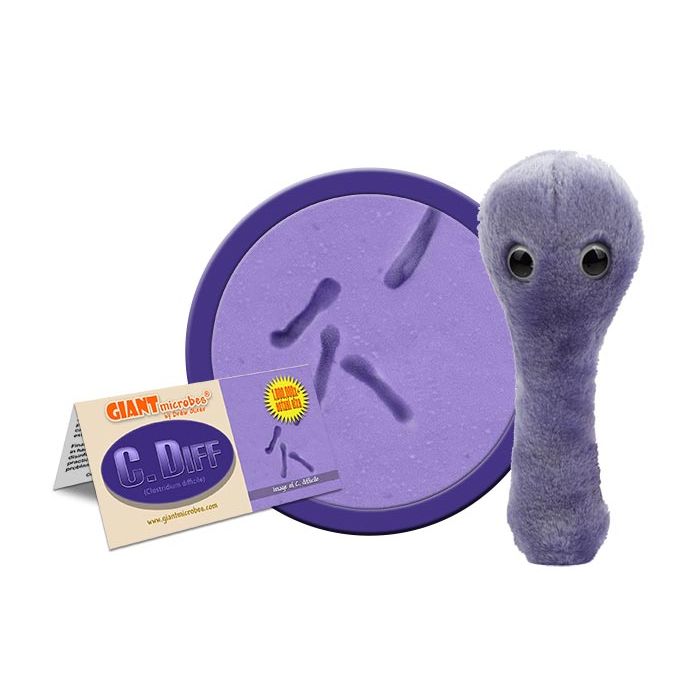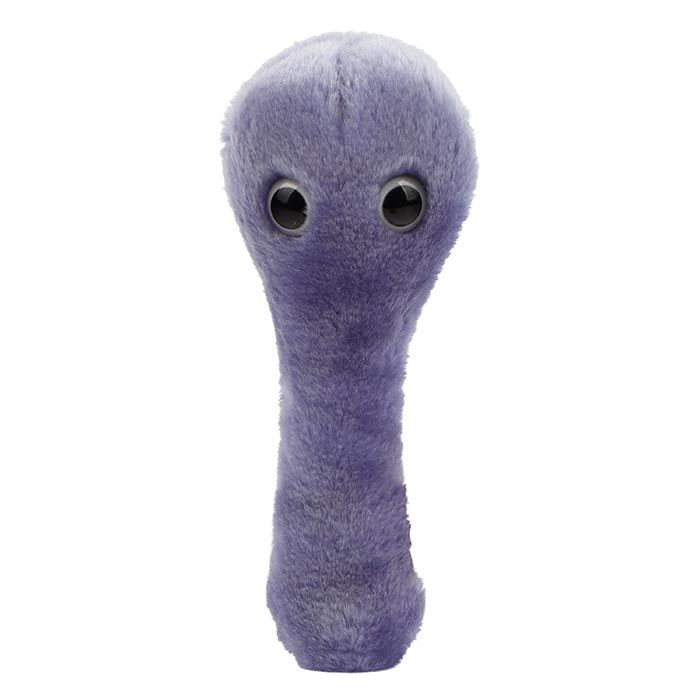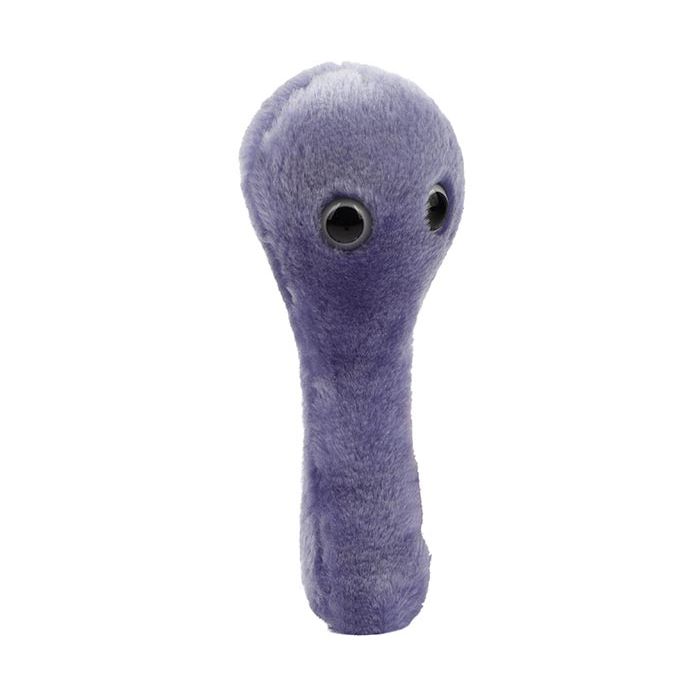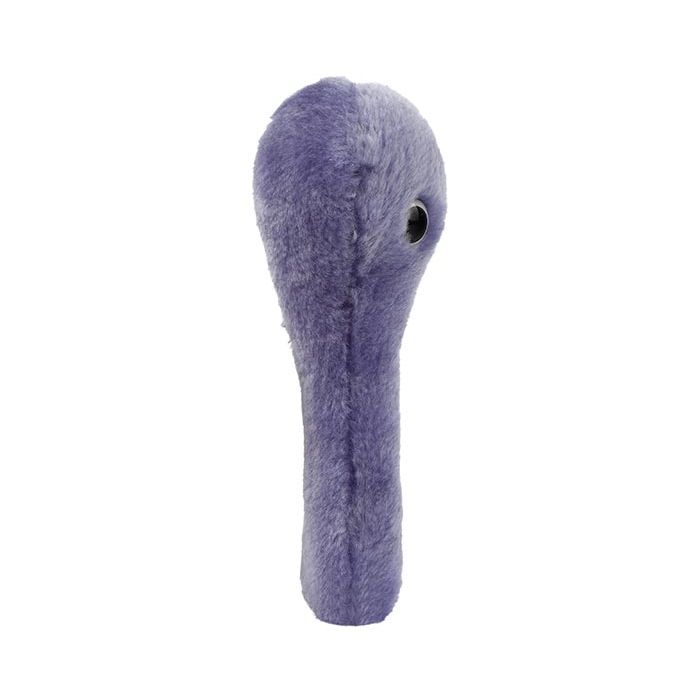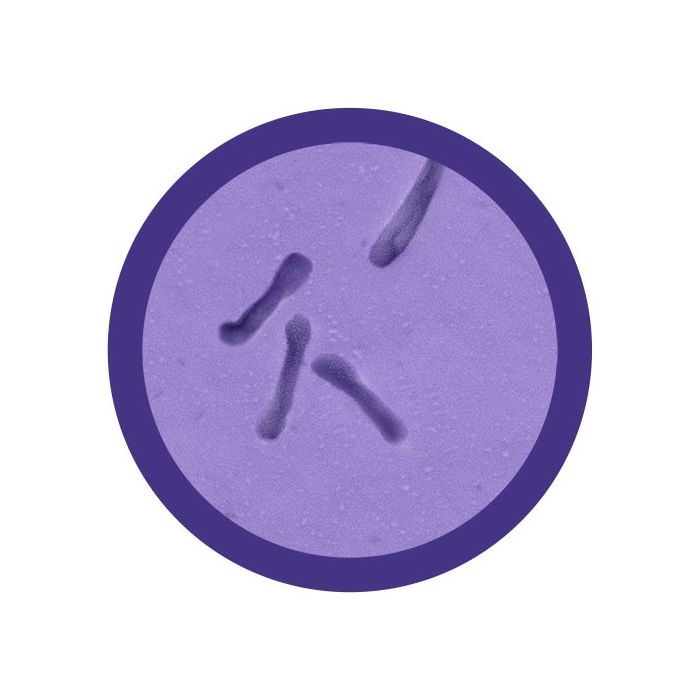C. Diff (Clostridioides difficile)
Give it up for M.C. Diff, hospitals' most notorious gangsta germ! This adorable plush representation of C. Diff provides a hands-on way to learn about this bacteria found in hospitals, nursing homes, and your digestive tract.
Makes the most memorable gift and training tool for microbiologists, healthcare workers, students and educators. Perfect get well gift for anyone who is recovering, features an information card that provides fascinating facts about C. Diff.
Size: 7 x 3 x 2”
Product Details
Additional Information
| Sizes | Giantmicrobes are based on actual microbes, cells, organisms and other critters, only 1,000,000 times actual size! Gigantic (GG) 16-24" XL (XL) 10-15" Original (PD) 5-8" Keychain (KC) 2-4" with clip |
|---|---|
| Materials | Plush from all new materials. Stuffed with polyester fiber fill. Surface washable: sponge with water & soap, air dry. |
| Packaging | Each plush microbe includes a printed card with fun, educational and fascinating facts about the actual microbe or cell. |
| Safety | Every product meets or exceeds U.S. and European standards for safety. For ages 3 and up. |
All about C. Diff (Clostridioides difficile)
FACTS: Clostridioides difficile, or C. diff for short, is a very common bacteria found in water, air, soil, and many other environments. However, it is becoming notorious as a cause of infections contracted in healthcare settings such as hospitals and nursing-homes. It can cause severe diarrhea and cramping, as well as inflammation of the colon – and in some instances it can be life-threatening.
C. diff infections typically strike when, or shortly after, a patient undergoes a regime of antibiotics. While targeted at virulent bacteria, antibiotic treatments also destroy many of the numerous beneficial bacteria that reside in the gastrointestinal tract. As these good bacteria succumb, competition for resources is reduced, allowing pathogenic bacteria such as C. diff to flourish.
Because healthcare patients often suffer from weakened immune systems (due to illness or age), they are particularly prone to C. diff infections. Furthermore, C. difficile can spread easily from one patient to others via the fecal-oral route – often on the hands of caregivers themselves. As a result, long-term stays in healthcare establishments further elevate the risk of infection.
Finally, C. diff has the ability to form hardy spores that can survive in harsh environmental conditions for months. While bleach-based disinfectants are effective against the spores, they are not always practical to use – which makes C. difficile an increasingly difficult problem for healthcare establishments. And their patients.
| Description | Overgrowth of C. diff. bacteria in the digestive tract. These bacteria naturally occur in the body, however, having too many of them causes problems. They release toxins that damage the lining of the intestines. People on long-term antibiotics are at risk because their gut bacteria are imbalanced, and C. diff. can multiply. The infection can spread through C. diff. spores in feces. Fun gift for a medical professional. |
|---|
| Name | The genus, Clostridium, comes from the Greek word kloster –spindle-- because the colonies look like spindles. The species, difficile, was derived because it was difficult to isolate and grow in pure culture. |
|---|
| Symptoms | Clostridium difficile colitis (inflammation of colon), diarrhea, abdominal pain, loss of appetite |
|---|
| Cure | 2 weeks of oral antibiotics and discontinuation of the antibiotics that caused the infection. |
|---|
| History |
1935: Identified by Hall and O’Toole. Big Outbreaks: 1974: High rates of antibiotic related colitis at Barnes Hospital in St. Louis, Missouri. Recent Outbreaks: 2011: C. diff. outbreaks in multiple hospitals in Ontario, Canada. |
|---|
| Fascinating Facts | Estimated 500,000 infections, 30,000 related deaths, and 15,000 direct deaths in the U.S. per year. |
|---|








